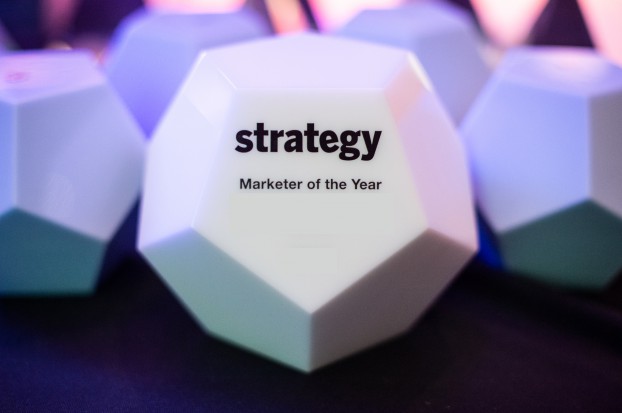‘It’s the thought that counts.’
Nowhere, perhaps, is that old adage more fitting than in the corporate world at holiday time.
Small gifts at year-end can provide just that little extra dollop of glue to cement business relationships between a company and its customers or suppliers.
Corporate gift-giving, however, isn’t quite what it used to be. For one thing, the days when executives could expect to stock their liquor cabinets for free at holiday time are long gone.
‘There has been a change in the type of gifts being given,’ says Peter Saunders, president of Calgary-based Merit Impressions. ‘People shy away from liquor and tobacco products now.’
While today’s more moderate society may frown upon booze and smokes as business gifts, we do like our food. From boxes of chocolates or nuts to specialty gourmet baskets, food is by far the No. 1 gift item these days, Saunders says.
In addition to being more socially acceptable than alcohol, food products tend to be seen as less lavish.
That’s a key issue, Saunders explains, because many companies nowadays are grappling with ethical issues, and are sensitive to the possibility that business gifts may be perceived as bribes. Some, in fact, have lain down guidelines with regard to what kinds of gifts – if any – employees may accept.
In some instances, he says, companies avoid the issue by ruling out gifts altogether. Others set a strict dollar limit.
Under the circumstances, it’s not surprising to find that smaller, memento-type gifts such as key-chains, diaries, portfolios and mugs (often filled with treats) are emerging as popular items. In addition to being useful and highly visible – two desirable qualities in the business-gift arena – they tend to fall under the standard $20 gift limit.
The traditional Christmas card is another item that has more or less had its day, according to Saunders.
In an increasingly multicultural society, after all, sending a customer or supplier a Christmas card can be inappropriate. So many companies now forgo the practice, in order to avoid the possibility of causing offense.
Laura Hansen, president of Vancouver-based Image Group, says that businesses are increasingly sensitive to the changing face of Canadian society, and generally try to ensure that gift-giving is as non-denominational as possible.
In fact, she says, gift-giving these days tends to be tied into the New Year, rather than Christmas or Hanukkah.
Hansen also affirms that lavish gifts aren’t as common as they once were. ‘Everyone is watching the bottom dollar,’ she says.
Many companies, Hansen adds, set two different price ranges to coincide with the clout of the recipient. While lower-level customers or suppliers will be sent a modestly priced gift such as a boxed pen, upper-level executives will receive something more impressive.
According to Hansen, the top gift on the West Coast this year is something called a latté cup. Maybe it has to do with geographic proximity to the birthplace of Starbucks, but these insulated tumblers – available in plastic or pricier stainless steel – are pouring into offices across b.c. ‘It’s a really trendy gift, because everyone drinks coffee out here,’ she says.
The popularity of the latté cup as a business gift reflects, in part, the fact that such an item tends to get taken out of the office. Increasingly, Hansen says, companies are aiming to offer gifts that recipients can use in their free time, rather than just at the office. If your customer is using his latté cup while driving his sports utility vehicle on the weekend or watching the kids play soccer after work, then that business gift becomes part of his lifestyle, rather than just desk clutter.
What else is hot this year? Mag-Lites, Hansen says. These heavy aluminum flashlights – so named because they used to be made out of magnesium – are gaining in popularity because they’re high-quality and are useful outside of the office.
And what’s not hot? Desk and wall calendars. According to Hansen, people nowadays prefer choosing their own calendars to reflect their personalities. The one exception to this: millennium diaries, which count down the days until the year 2000.
Colin Fell, president of Oakville, Ont.-based promotional products distributor Target Marketing, says he’s finding that laser pointers – which shine a beam of light far into the distance – are another hot item on company holiday lists this year.
Business gifts, Fell points out, don’t have to be lavish at all to make a recipient happy. On the contrary, price plays a very small role in determining how excited someone’s going to be about receiving a gift.
‘People are always thrilled to get gifts,’ he says. A small memento tells your best customers that they’re top of mind, and can abet your efforts to get closer to them.
Some companies, however, find the whole business far too complicated.
Mercedes-Benz Canada, for one, doesn’t give out any gifts at holiday time. According to Jo Anne Caza, manager of marketing and communications, the Toronto-based luxury car manufacturer stopped the practice several years ago because it simply became too difficult to determine who should receive a gift. ‘Where do you cut it off?’
Compaq Canada, meanwhile, found its own way to deal with some of the potentially thorny issues in this area. Instead of giving holiday-time business gifts, says John Challinor, manager of corporate communications, the Richmond Hill, Ont.-based company donates $10,000 to the Daily Bread Food Bank. Compaq then sends out cards to customers describing the gift.
Challinor says a charitable donation is a tidy way of getting around the no-gift policy many corporations have adopted – and it’s a more fitting way of commemorating the holiday.
‘What,’ he asks, ‘is the greatest need? And what is the purpose of the season?’
Also in this special report:
Ÿ A few of their favorite things p.27
Ÿ Some suggestions for holiday giving p.30























